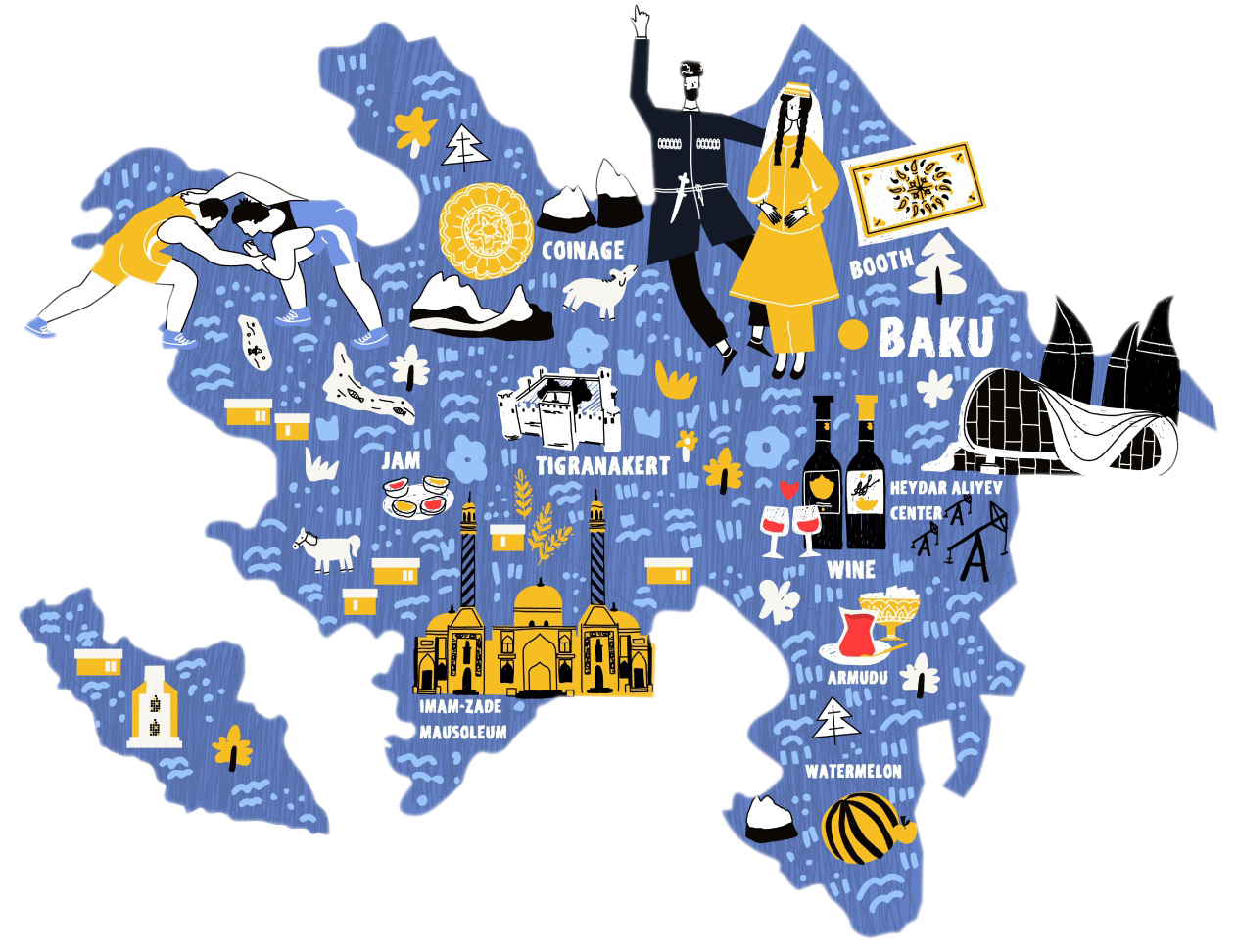AZERBAIJAN WINE story

Millennia ago, long before the Caucasus region was divided up into nation states, people living here were cultivating grapes. And pretty soon they hit on the sterling idea of crushing them to make wine.
An ever-increasing body of archaeological and micro-botanical research suggests that wine was made in considerable quantity over 6000 years ago at sites along the Arpachay River, a valley in Nakhchivan’s Sharur region. Several sites suggest an even older knowledge of wine by the Shulaveri-Shomutepe Culture near Aghstafa in what today is western Azerbaijan. Evidently, the South Caucasus region is of the oldest centres of wine making anywhere on the planet.
But for the first major step in Azerbaijan’s modern wine development, we fast forward to the early 19th century and the town of Goygol, then called Helenendorf. It was founded by destitute settlers from Germany, excited to head towards the land of Noah following an invitation from Tsar Alexander. The first group of 1400 settlers left from southern Germany in 1816 and over the next few decades, despite an epic series of difficulties, they planted new vineyards. By the early 1860s, Christopher Vohrer incorporated Azerbaijan’s first fully fledged commercial wine company.
In the Soviet era, Azerbaijan’s production increased dramatically, albeit often favouring low-quality sweet wines, reaching a peak in 1984. Thereafter, however, Gorbachev’s anti-alcohol, led to the destruction of a huge proportion with large areas of vines uprooted. After independence, a series of government initiatives starting in 2002 led to widescale replanting with a greater emphasis on quality over quantity. Wineries essentially started all over again helped by expert winemakers from Italy, Moldova and elsewhere. The introduction of popular, internationally recognised grape varieties has also helped in crafting wines with global export appeal while the use of Caucasian endemics allows for experimentation with more regionally specific niche products.
In the first half of 2018 alone, exports were reported to have grown 80% following new deals to sell Azerbaijani wines in China. And since 2018, there is now a Baku Wine School for training advanced sommeliers. All in all, it’s a very exciting time for wine in Azerbaijan.
